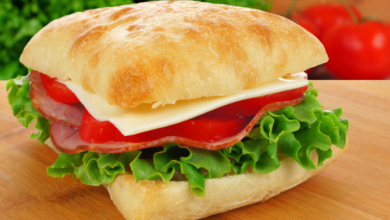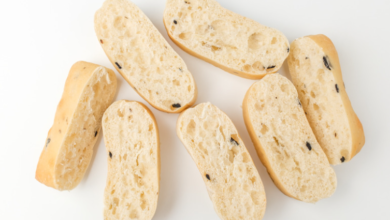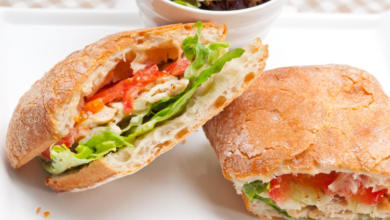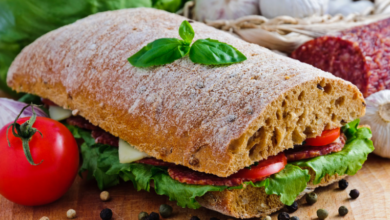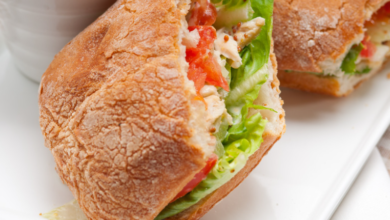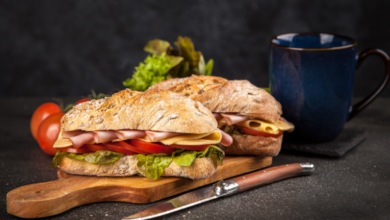Does ciabatta bread have eggs? The surprising answer
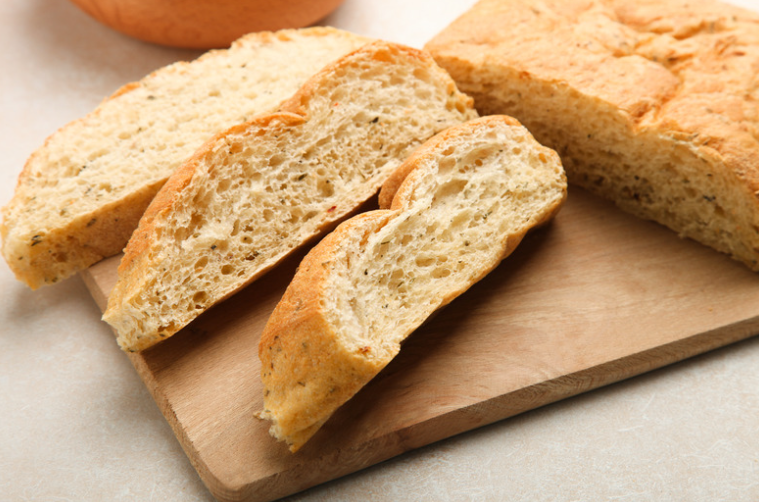
What To Know
- Ciabatta bread can be used in a variety of culinary applications, from sandwiches and salads to appetizers and entrees.
- Ciabatta bread, with its distinctive texture and versatility, is a staple of Italian cuisine and a favorite among bread enthusiasts worldwide.
- Eggs are not a typical ingredient in the traditional ciabatta bread recipe and are not necessary for achieving its characteristic texture or flavor.
The answer to this common question is a resounding no. Ciabatta bread, a beloved Italian loaf with its characteristic open crumb and crispy crust, does not contain eggs as part of its traditional recipe.
What Gives Ciabatta Bread Its Unique Texture?
The distinctive texture of ciabatta bread is achieved through a unique combination of factors:
- High Hydration: Ciabatta dough is highly hydrated, with a water content of around 80%. This high hydration creates a slack and elastic dough that allows for the formation of large air pockets during fermentation.
- Long Fermentation: Ciabatta dough undergoes a long and slow fermentation process, typically lasting for 24-48 hours. This extended fermentation allows the dough to develop complex flavors and a chewy texture.
- Steam Baking: Ciabatta bread is baked in a steamy environment, which helps to create its signature crispy crust and open crumb.
Common Ingredients in Ciabatta Bread
While ciabatta bread does not contain eggs, it typically includes the following ingredients:
- Flour: High-protein flour, such as bread flour or all-purpose flour, provides the structure and elasticity of the dough.
- Water: As mentioned earlier, ciabatta dough has a high water content.
- Yeast: Yeast is used as a leavening agent, helping the dough to rise and create air pockets.
- Salt: Salt enhances the flavor of the bread and helps to control fermentation.
- Olive Oil: Some ciabatta recipes include olive oil, which adds richness and moisture to the crumb.
Benefits of Egg-Free Ciabatta Bread
In addition to its delicious taste and unique texture, egg-free ciabatta bread offers several benefits:
- Suitable for Egg Allergies: Individuals with egg allergies can safely enjoy ciabatta bread without any allergic reactions.
- Vegan-Friendly: Ciabatta bread is naturally vegan, making it an excellent choice for those following a plant-based diet.
- Versatile: Ciabatta bread can be used in a variety of culinary applications, from sandwiches and salads to appetizers and entrees.
Variations on Ciabatta Bread
While the traditional ciabatta bread recipe does not contain eggs, there are some variations that may include them:
- Ciabatta with Eggs: Some bakers may add eggs to ciabatta dough to enhance its richness and crumb structure.
- Ciabatta with Herbs or Cheese: Ciabatta bread can be flavored with herbs, such as rosemary or basil, or with grated cheese, such as Parmesan or mozzarella.
Final Thoughts: Enjoying Ciabatta Bread with Confidence
Ciabatta bread, with its distinctive texture and versatility, is a staple of Italian cuisine and a favorite among bread enthusiasts worldwide. Whether you have egg allergies, follow a vegan diet, or simply prefer the traditional egg-free recipe, you can enjoy this delicious bread with confidence.
Common Questions and Answers
Q: Why doesn’t traditional ciabatta bread contain eggs?
A: Eggs are not a typical ingredient in the traditional ciabatta bread recipe and are not necessary for achieving its characteristic texture or flavor.
Q: Can I add eggs to ciabatta bread dough?
A: Yes, you can add eggs to ciabatta bread dough to enhance its richness and crumb structure. However, this is not a traditional variation.
Q: Is ciabatta bread always vegan?
A: Yes, traditional ciabatta bread is vegan as it does not contain any animal-based ingredients, including eggs.
Q: What is the best way to store ciabatta bread?
A: Store ciabatta bread at room temperature in a breathable bag or breadbox for 2-3 days. For longer storage, you can freeze it for up to 3 months.
Q: How can I tell if ciabatta bread has eggs?
A: Check the ingredient list on the packaging or ask your baker if the ciabatta bread contains eggs.
